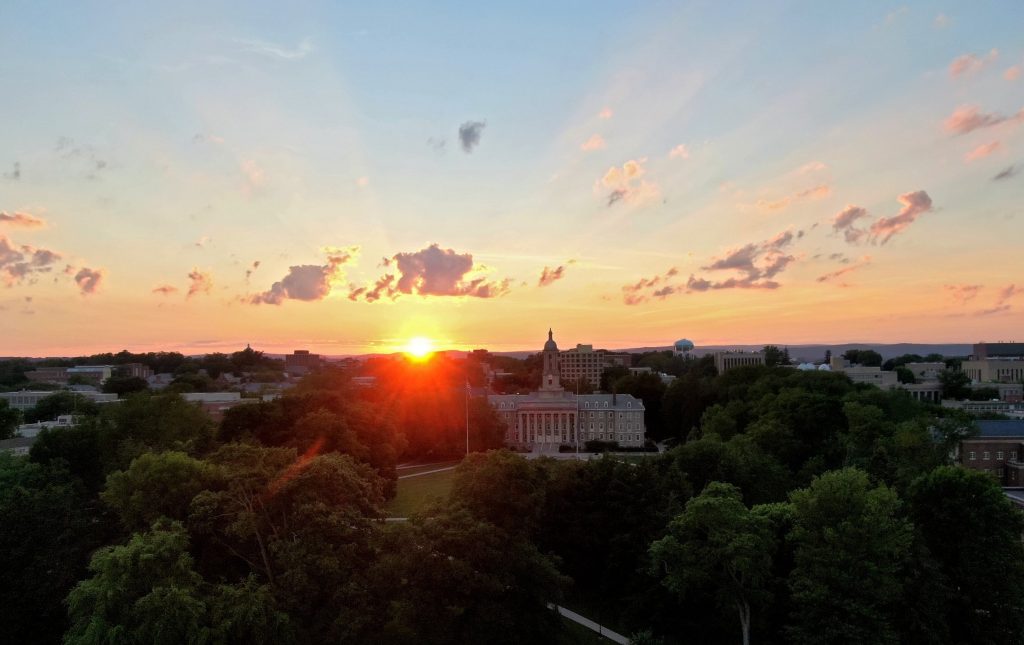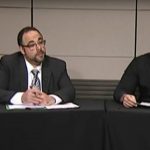by Wyatt Massey of Spotlight PA State College
Photo courtesy of Abby Drey / Centre Daily Times
This story was produced by the State College regional bureau of Spotlight PA, an independent, nonpartisan newsroom dedicated to investigative and public-service journalism for Pennsylvania. Sign up for our north-central Pa. newsletter, Talk of the Town, at spotlightpa.org/newsletters/talkofthetown.
For Sunshine Week, an annual event that highlights the importance of government transparency, Spotlight PA hosted a discussion on openness and accountability in public education.
The March 14 virtual panel detailed how to navigate open meetings and records laws, get involved in local education conversations, and how to track the court-mandated overhaul of education funding in Pennsylvania.
Here are five key things to know from the discussion, which can be viewed in full online.
School officials might not know the laws
While some education leaders might willfully violate open meetings or records laws, others might simply not know what’s required of them. The panelists emphasized the importance of learning the nuances of state law to better understand if there are problems in your school district or at your local university.
Ashli Giles-Perkins, a staff attorney at the Education Law Center, said school boards must take official actions — such as creating policies, making recommendations, and voting on proposals — in public. Members of the public should be allowed to make comments on any of these moves before a board votes, she said.
Similarly, under Pennsylvania’s Right-to-Know Law, agency records like those from a school district are presumed to be public. Any resident can file an open records request, Giles-Perkins said.
However, the law exempts certain education records from public disclosure, including academic transcripts, personnel records, and documents that could pose a security risk if publicized.
Transparency rules differ between Pennsylvania schools
Private schools in Pennsylvania are not required to follow the same open records guidelines as public ones, but public schools also have different standards, either.
Pennsylvania’s four state-related universities — Lincoln University, Penn State University, Temple University, and the University of Pittsburgh — are legally required to follow the state’s open meetings law. However, their special status as “state-related institutions” largely exempts them from the open records laws.
Susan Spicka, executive director of Education Voters of PA, said charter and cyber charter schools must comply with Right-to-Know requests, but things can get complicated. For example, education management organizations often run charters and have to only disclose records related to the school rather than details of their full operations.
Pushing for transparency means getting involved
Ashley Stalnecker, an education reporter at LNP | LancasterOnline, said it is important to attend local school board meetings to understand what is happening, what records you might want to request, and to determine if there are potential violations of state law.
“There’s not a Sunshine Law police that finds these things going on,” Stalnecker said. “If you’re somebody who’s in one of these meetings and you see something like that, it’s on you or on the reporter or anybody else in the room to stand up and say, ‘Hey, I think this is violating the Sunshine Law.’”
A Pennsylvania agency found to knowingly violate the open meetings law can be fined between $100 and $1,000 for a first offense and be forced to pay legal fees for the party that brought the case.
Giles-Perkins acknowledged that asserting a Sunshine Act violation can feel scary, especially because school board members should know the law given their position. But saying something can be necessary to flag a real problem, she said.
“The next thing you know there’s a Facebook thread about it, and it’s in the news, and it’s this whole big thing. And it starts with that one person that stood up,” Giles-Perkins said.
Use clues to tailor your records requests
When Jillian Forstadt, an education reporter at WESA, heard school officials at a meeting discussing how school buildings were underutilized, she filed a request for the information.
The resulting data allowed her to create charts showing how enrollment trends were affecting local schools and what could be next as local leaders considered consolidation or closure.
“That’s the kind of data that people can use,” Forstadt said. “And that’s something that we don’t typically get from our school boards, the data that applies to the individual students. While these policies are made on a very large-scale basis, it’s when you are able to get that kind of data you can actually see how decisions are affecting students in their individual classrooms.”
Things to watch with new funding model
In February 2023, a Commonwealth Court judge ruled that Pennsylvania’s public school funding system was unconstitutional and that students were “deprived of equal protection of law.” The Education Law Center helped bring the suit on behalf of a group of plaintiffs, including the School District of Lancaster. The ruling jump-started an ongoing overhaul of how schools are funded.
Stalnecker said if districts get more funding, she will monitor whether the increased support improves student academic performance and whether schools create or better support initiatives aimed at helping traditionally underserved students.
Spicka also emphasized tracking where additional funding is spent, recommending the public follow whether it goes toward things like raising staff pay.
The two reporters on the panel, Forstadt and Stalnecker, said they are curious how a new funding model could affect property tax rates, or millage rates, because tax revenue plays a key role in funding local education systems.
SUPPORT THIS JOURNALISM and help us reinvigorate local news in north-central Pennsylvania at spotlightpa.org/donate/statecollege. Spotlight PA is funded by foundations and readers like you who are committed to accountability and public-service journalism that gets results.




